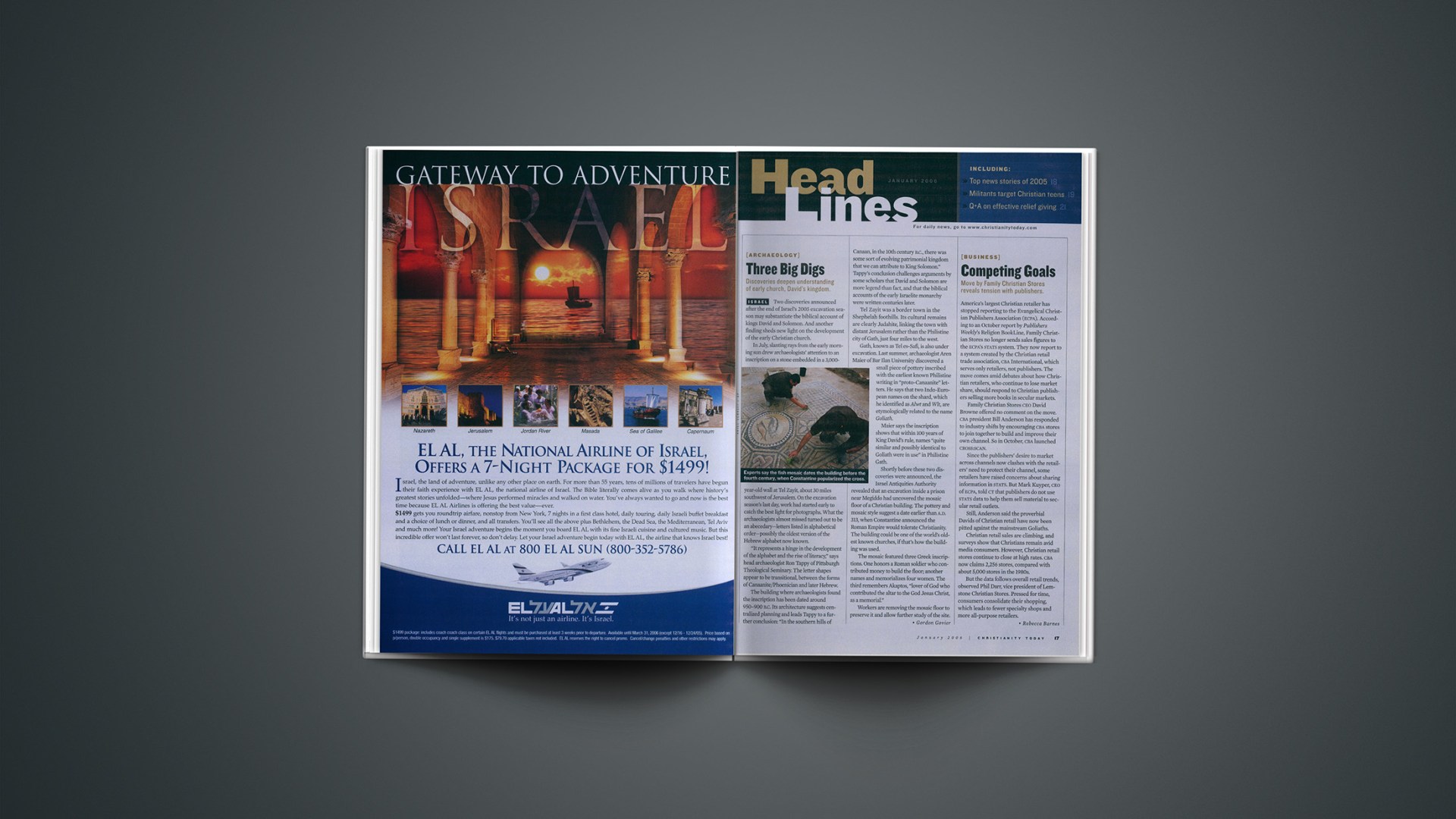Two discoveries announced after the end of Israel’s 2005 excavation season may substantiate the biblical account of kings David and Solomon. And another recently announced finding sheds new light on the development of the early Christian church.
In July, slanting rays from the early morning sun drew archaeologists’ attention to an inscription on a stone embedded in a 3,000-year-old wall at Tel Zayit, about 30 miles southwest of Jerusalem. On the excavation season’s last day, work had started early to catch the best light for photographs. What the archaeologists almost missed turned out to be an abecedary—letters listed in alphabetical order—possibly the oldest version of the Hebrew alphabet now known.
“It represents a hinge in the development of the alphabet and the rise of literacy,” says head archaeologist Ron Tappy of Pittsburgh Theological Seminary. The letter shapes appear to be transitional, between the forms of Canaanite/Phoenician and later Hebrew. “It does seem to indicate that there was a literate scribal class in this region of the country.”
The building where archaeologists found the inscription has been dated around 950-900 B.C. Its architecture suggests centralized planning and leads Tappy to a further conclusion: “In the southern hills of Canaan, in the 10th century B.C., there was some sort of evolving patrimonial kingdom that we can attribute to King Solomon.” Tappy’s conclusion challenges arguments by some scholars that David and Solomon are more legend than fact, and that the biblical accounts of the early Israelite monarchy were written centuries later.
Tel Zayit was a border town in the Shephelah foothills. Its cultural remains are clearly Judahite, linking the town with distant Jerusalem rather than the Philistine city of Gath, just four miles to the west.
Gath, known as Tel es-Safi, is also under excavation. Last summer, archaeologist Aren Maier of Bar Ilan University discovered a small piece of pottery inscribed with the earliest known Philistine writing in “proto-Canaanite” letters. He says that two Indo-European names on the shard, which he identified as Alwt and Wlt, are etymologically related to the name Goliath.
Maier says the inscription shows that within 100 years of the time of King David, names “quite similar and possibly identical to Goliath were in use” in Philistine Gath.
Shortly before these two discoveries were announced, the Israel Antiquities Authority revealed that an excavation inside a prison near another well-known archaeological site, Megiddo, had uncovered the mosaic floor of a Christian building. The pottery and mosaic style suggest a date earlier than A.D. 313, when Constantine announced the Roman Empire would tolerate Christianity. The building could be one of the world’s oldest known churches, if that’s how the building was used.
The mosaic featured three Greek inscriptions. One honors a Roman soldier who contributed money to build the floor; another names and memorializes four women. The third remembers Akaptos, “lover of God who contributed the altar to the God Jesus Christos, as a memorial.”
Workers are removing the mosaic floor to preserve it and allow further study of the site.
Copyright © 2006 Christianity Today. Click for reprint information.
Related Elsewhere:
Weblogcommented on the archeological finds and linked to other news sources.










